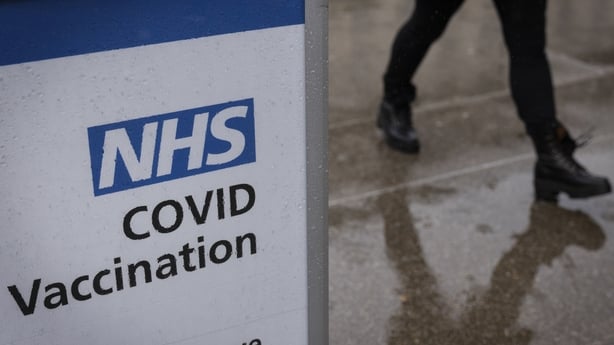Britain's health service is close to the edge of being overwhelmed in many areas and and pressure is only going to increase as winter approaches, the head of a healthcare system body has said.
The UK reported 223 deaths from Covid-19 yesterday, the highest daily figure since March, and cases are the highest in Europe.
Prime Minister Boris Johnson has lifted almost all Covid-19 restrictions in England, and is keeping measures such as mandatory mask-wearing - common in much of Europe - in reserve only as a "Plan B".
But doctors have expressed concern an increase in numbers going into hospital, combined with pressures on the NHS from seasonal viruses, could lead to a "perfect storm" which would leave hospitals unable to deal with long waiting lists and function normally.
Matthew Taylor, Chief Executive of the NHS Confederation, called for Plan B measures such as mask-wearing and working from home, which would only be minor inconveniences and could avoid stumbling into a crisis.
"I talk to health leaders every day, and I have literally not spoken to any leader who doesn't say that their service is under intense pressure now. This is the middle of October. Things are only going to get worse," he told BBC radio.
"The health service is right at the edge... if you push much further we will not be able to provide the level of service that people need to have."
The UK government has said that it is relying on vaccinations, including booster shots for the vulnerable, to avoid lockdowns this winter.

Business minister Kwasi Kwarteng said another lockdown would be wrong and also played down the prospect that more limited measures would be brought in soon.
"Ministers, scientists, experts are looking at data on an hourly basis," he told the BBC.
"And we don't feel that it's the time for Plan B right now. What we're trying to do is get people who haven't been vaccinated, to get those vaccinations up, increase the uptake of the booster jab."
However, Mr Kwarteng also said it was a "good thing" for people to continue to wear masks in public places.
Asked whether he would encourage people to wear face masks routinely, he said: "I wear face masks in public places, particularly on public transport, and people generally, as I notice on the tube in London, tend to ... they do wear face masks and face masks are worn. So, that's something which I think is a good thing."
He added: "I think people should do what they feel is the right thing to do. They've got to, I think, be respectful towards other people, they've got to keep themselves safe and the public as well."
Adam Finn, who is on the Joint Committee of Vaccination and Immunisation, said he is not sure why the government is not encouraging the public to adhere to measures.
He said: "If you are wearing a good quality mask or surgical mask indoors with other people around it will substantially reduce the risk if you have the virus and are not aware of it to the people around you.
"If you wear a mask we use in hospitals it will reduce the risk of you getting the infection from other people. You can actually protect yourself but, at the very least, you can contribute to stopping the virus from spreading about."
He said he has seen people not wearing masks in his local area, adding: "My observation is that we look sideways at each other and copy behaviour, and it makes people stand out if they are wearing a mask.
"If I go into a supermarket now I'm one of a few wearing masks, most people go with the flow and we're not being told not to."
He said hospital admissions and deaths "will continue to where we can't cope any more and we will be back to the bad old days of being asked to stay at home".
He added: "We can stop that if we go about our normal lives by wearing masks, taking lateral flows."
